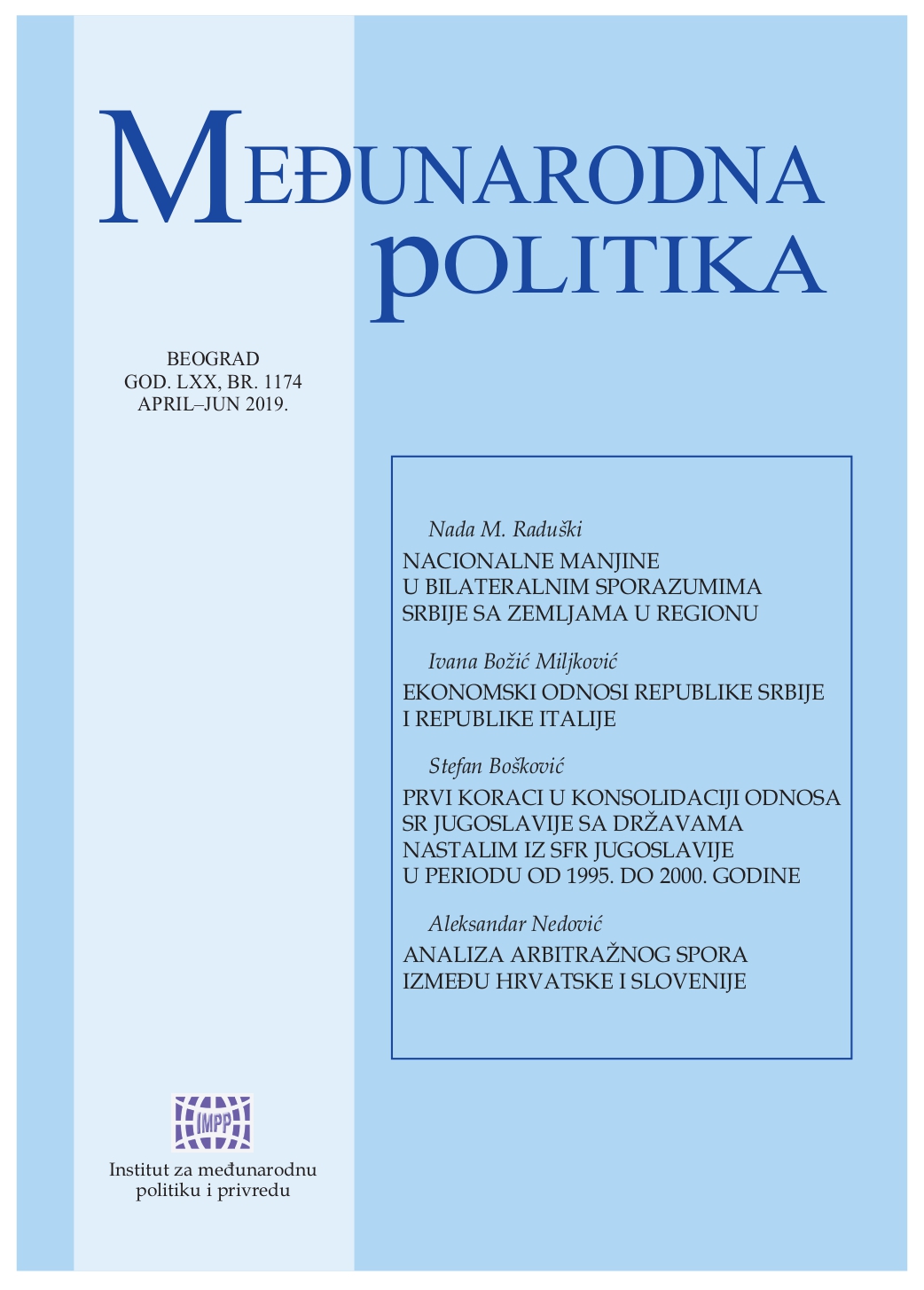Analiza arbitražnog spora između Hrvatske i Slovenije
Analysis of arbitration dispute between Croatia and Slovenia
Author(s): Aleksandar NedovićSubject(s): International Law, International relations/trade
Published by: Институт за међународну политику и привреду
Keywords: Principle uti possidetis; Arbitration; state borders; permanent arbitration court
Summary/Abstract: After secession from the SFRY, Croatia and Slovenia became independent states, so it was necessary to define the states’ borders. Both countries accepted the application of the principle uti possidetis, but the implementation of this principle was not simple in practice. The reason for this was that the internal borders of the SFRY were not clearly defined. Soon, the question of the demarcation of Croatia and Slovenia became a controversial issue in relation to these countries. In the period from 1991 to 2009, Croatia and Slovenia tried to resolve this controversial issue by peaceful diplomatic means, but after the failure of these attempts, in 2009 in Stockholm they concluded the Arbitration Agreement by which the resolution of this controversial issue was entrusted to the Permanent Court of Arbitration in The Hague. Arbitration is an institute of International Public Law that has great potential for application in interstate relations, but it also has disadvantages. The question arises as to whether it is an adequate and absolute substitute for the International Court of Justice, or the International Court of Justice is irreplaceable for certain controversial issues.
Journal: Међународнa пoлитика
- Issue Year: 70/2019
- Issue No: 1174
- Page Range: 54-71
- Page Count: 18
- Language: Serbian

